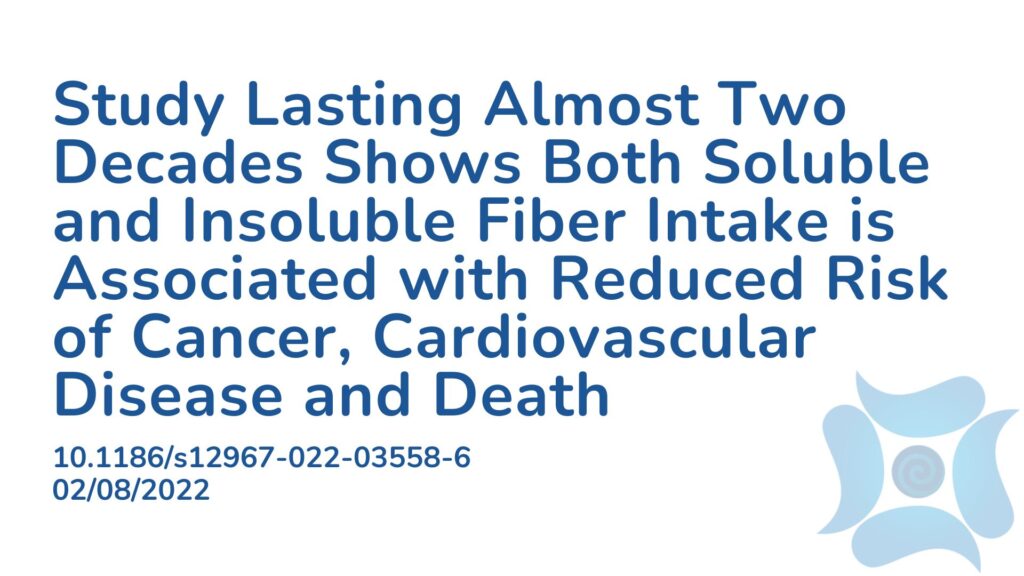Summary: Inadequate consumption of dietary fiber has been associated with multiple cancers such as colorectal, breast, endometrial and renal cell carcinoma. Low fiber intake has also been linked to diabetes and cardiovascular disease. However, little research has looked at the differences between fibers (soluble vs. insoluble) and whether they contribute differently. Soluble fiber is found in beans, lentils, peas, oat bran, barley and many fruits and vegetables. Insoluble fiber is found in whole grains including wheat bran, nuts and seeds. The objective of this paper was to investigate the associations between intake of soluble vs. insoluble fiber and death from all causes, as well as cardiovascular disease and cancer. This study was a large prospective cohort analysis, including 86,642 participants that were questioned in 1998 about their lifestyle and medical history. The participants were followed until time of death, or till 2015, when the study period ended. In this large sample of American adults, intake of total fiber, as well as soluble and insoluble fiber, were associated with lower risks of any kind of death, but specifically death from cardiovascular disease and cancer.
Abstract:
Objective: Several studies suggest that dietary fiber intake may reduce mortality risk, but this might depend on the fiber types and the evidence regarding the role of soluble fiber or insoluble fiber on death risk remain limited and inconsistent. Therefore, this study aimed to comprehensively evaluate multiple types of dietary fiber intake on mortality from all causes, cardiovascular disease and cancer in the large-scale Prostate, Lung, Colorectal, and Ovarian Cancer (PLCO) Screening Trial. Methods: A multivariate Cox proportional hazards model was used to estimate hazard ratios (HRs) and 95% confidence intervals (CIs). Results: This study finally included 86,642 participants with 17,536 all-cause deaths, 4842 cardiovascular deaths and 5760 cancer deaths identified after a total of 1,444,068 follow-up years. After adjusting for potential confounders, dietary total fiber intake was statistically significantly inversely associated with all-cause death (Q5 vs Q1: HR 0.71, 95% CI 0.66–0.75; P for trend < 0.001), cardiovascular death (Q5 vs Q1: HR 0.73, 95% CI 0.65–0.83; P for trend < 0.001) and cancer mortality (Q5 vs Q1: HR 0.77, 95% CI 0.69–0.86; P for trend < 0.001). Similar results were observed for both insoluble and soluble fiber intake. Restricted cubic spline model analysis suggested that there was a nonlinear association of dietary fiber intake with mortality risk (all P for nonlinearity < 0.05). Conclusions: In this large nationally representative sample of US adult population, intakes of total fiber, soluble fiber, and insoluble fiber were associated with lower risks of all-cause, cardiovascular and cancer mortality.
Article Publication Date: 02/08/2022
DOI: 10.1186/s12967-022-03558-6




